Renault R5 vs Honda Jazz – Differences & prices compared
Compare performance, boot space, consumption and price in one view.
Find out now: which car is the better choice for you – Renault R5 or Honda Jazz?
The Renault R5 (Hatchback) comes with a Electric engine and Automatic transmission. In comparison, the Honda Jazz (Hatchback) features a Full Hybrid engine with Automatic transmission.
When it comes to boot capacity, the Renault R5 offers 326 L, while the Honda Jazz provides 304 L – depending on how much space you need. If you’re looking for more power, decide whether the 540 HP of the Renault R5 or the 122 HP of the Honda Jazz suits your needs better.
In terms of consumption, the values are 14.80 kWh per 100 km for the Renault R5, and 4.50 L for the Honda Jazz.
Price-wise, the Renault R5 starts at 23900 £, while the Honda Jazz is available from 23100 £. Compare all the details and find out which model fits your lifestyle best!
In the competitive subcompact segment, the Honda Jazz and the Renault R5 stand out with their unique offerings. The Jazz is celebrated for its practicality, spacious interior, and hybrid efficiency, making it a favored choice for urban dwellers. Meanwhile, the Renault R5 embraces retro charm with modern tech, appealing to those who prioritize style alongside performance.
Renault R5
The Renault R5 is a classic hatchback that captured the imagination of drivers with its distinctive design and compact versatility. Its agile handling and efficient performance made it a popular choice in urban settings and winding country roads alike. With a blend of style and practicality, the Renault R5 remains a beloved icon in automotive history.
details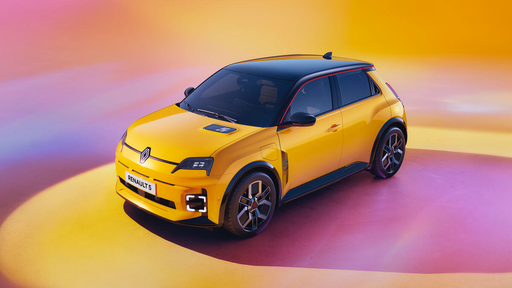 @ media.renault.at
@ media.renault.at
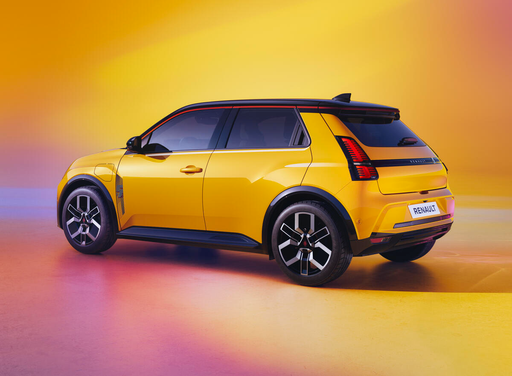 @ media.renault.at
@ media.renault.at
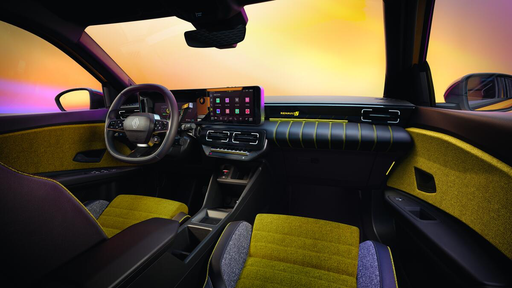 @ media.renault.at
@ media.renault.at
Honda Jazz
The Honda Jazz stands out in the compact car category with its intelligently designed interior, offering a surprisingly spacious cabin that comfortably accommodates passengers and luggage. Its efficient hybrid powertrain ensures a smooth and economical driving experience, ideal for both urban commutes and longer journeys. Furthermore, the Jazz is equipped with a range of advanced safety features, providing peace of mind while on the road.
details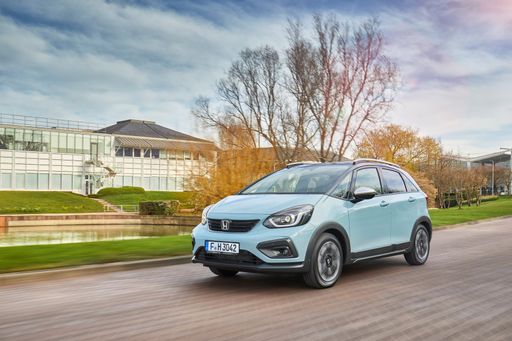 @ hondanews.eu
@ hondanews.eu
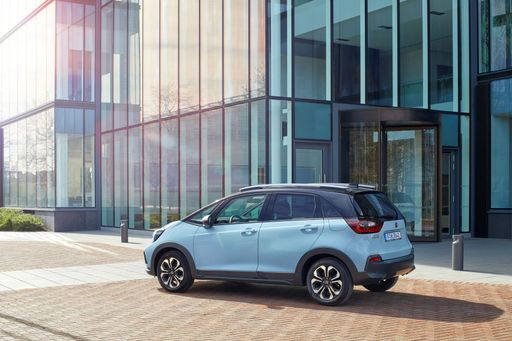 @ hondanews.eu
@ hondanews.eu
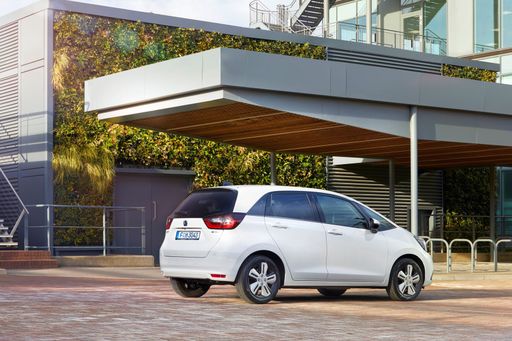 @ hondanews.eu
@ hondanews.eu
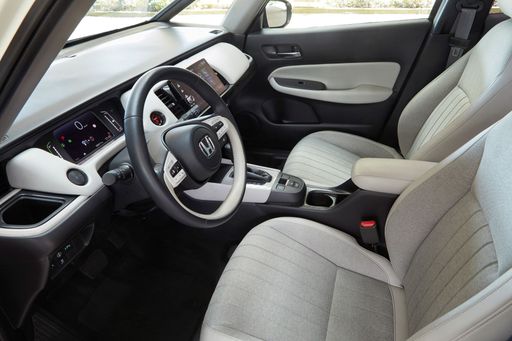 @ hondanews.eu
@ hondanews.eu
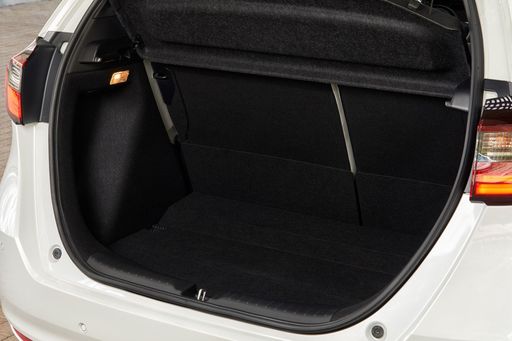 @ hondanews.eu
@ hondanews.eu
Honda Jazz vs Renault R5: A Head-to-Head Comparison
As the automotive market rapidly evolves, two contenders have recently emerged that attract the attention of drivers looking for compact, efficient, and stylish hatchbacks: the Honda Jazz and the Renault R5. With distinct engineering, technology focus, and diverse powertrains, these vehicles provide different approaches to the modern driving experience. In this article, we will delve into the technical specifications and innovative features that define each model.
Design and Dimensions
The Honda Jazz is a spacious hatchback with a length of approximately 4,089 to 4,105 mm and a height ranging from 1,526 to 1,556 mm, comfortably providing room for five passengers. The Jazz's design is functional, with a trunk capacity of 304 liters, ensuring ample space for daily errands or weekend getaways.
On the other hand, the Renault R5 presents a slightly more compact design, measuring 3,922 mm in length. Its height stands at 1,498 mm, and it also accommodates five occupants with impressive trunk space of 326 liters. The R5's contemporary hatchback silhouette reflects a balance of style and practicality.
Powertrain and Performance
The Honda Jazz is equipped with a 1.5-liter full hybrid engine, producing 122 horsepower and 253 Nm of torque. With a continuously variable transmission (CVT), the Jazz achieves an impressive 0-100 km/h acceleration in approximately 9.4 to 9.7 seconds. Additionally, it boasts an excellent fuel consumption of around 4.5 to 4.8 L/100 km, making it a standout in terms of efficiency.
In contrast, the Renault R5 represents a shift towards electrification. It is available with various electric power outputs, up to 150 horsepower. The R5 can accelerate from 0-100 km/h in just 8 seconds, thanks to its electric powertrain's immediate torque delivery. With a consumption of 14.8 kWh/100 km and a maximum range of up to 405 km, the R5 exemplifies the broader adoption of electric mobility.
Innovation and Technology
Honda integrates several technological innovations into the Jazz, featuring advanced driver-assistance systems and connectivity options that enhance the driving experience. The hybrid's ability to intelligently switch between electric and petrol power optimizes fuel efficiency, reflecting Honda's commitment to sustainability.
The Renault R5, on the other hand, showcases an innovative approach to electrification. It not only emphasizes a zero-emissions profile with its electric powertrain but also includes modern infotainment systems and connectivity features synonymous with the latest in automotive technology. With a proactive approach to sustainability and a commitment to reducing carbon emissions, the R5 stands out in a market that leans towards eco-friendliness.
Summary: Which Model Suits You Best?
Both the Honda Jazz and Renault R5 offer unique advantages that cater to varying driver preferences. The Jazz's hybrid efficiency and spacious interior make it ideal for those seeking practicality and fuel economy without sacrificing style. In contrast, the R5 represents the future of driving, offering a fun, electric compact car that promises to reduce your carbon footprint while delivering thrilling performance.
Ultimately, the choice between the Honda Jazz and Renault R5 may come down to personal priorities. If you value petrol efficiency alongside proven reliability, the Honda Jazz is an excellent choice. Meanwhile, if your focus is on cutting-edge electric performance and sustainability, the Renault R5 is bound to impress with its robust features and zero emissions.

|

|
|
|
|
Costs and Consumption |
|
|---|---|
|
Price
23900 - 132900 £
|
Price
23100 - 26700 £
|
|
Consumption L/100km
-
|
Consumption L/100km
4.5 - 4.8 L
|
|
Consumption kWh/100km
14.8 - 15.2 kWh
|
Consumption kWh/100km
-
|
|
Electric Range
307 - 405 km
|
Electric Range
-
|
|
Battery Capacity
40 - 52 kWh
|
Battery Capacity
-
|
|
co2
0 g/km
|
co2
102 - 108 g/km
|
|
Fuel tank capacity
-
|
Fuel tank capacity
40 L
|
Dimensions and Body |
|
|---|---|
|
Body Type
Hatchback
|
Body Type
Hatchback
|
|
Seats
2 - 5
|
Seats
5
|
|
Doors
3 - 5
|
Doors
5
|
|
Curb weight
1447 - 1524 kg
|
Curb weight
1302 - 1320 kg
|
|
Trunk capacity
326 L
|
Trunk capacity
304 L
|
|
Length
3922 - 4080 mm
|
Length
4089 - 4105 mm
|
|
Width
1744 - 2030 mm
|
Width
-
|
|
Height
1380 - 1498 mm
|
Height
1526 - 1556 mm
|
|
Payload
396 - 418 kg
|
Payload
370 - 388 kg
|
Engine and Performance |
|
|---|---|
|
Engine Type
Electric
|
Engine Type
Full Hybrid
|
|
Transmission
Automatic
|
Transmission
Automatic
|
|
Transmission Detail
-
|
Transmission Detail
-
|
|
Drive Type
Front-Wheel Drive, Rear-Wheel Drive
|
Drive Type
Front-Wheel Drive
|
|
Power HP
122 - 540 HP
|
Power HP
122 HP
|
|
Acceleration 0-100km/h
3.5 - 9 s
|
Acceleration 0-100km/h
9.4 - 9.7 s
|
|
Max Speed
150 - 270 km/h
|
Max Speed
175 km/h
|
|
Torque
225 - 4800 Nm
|
Torque
253 Nm
|
|
Number of Cylinders
-
|
Number of Cylinders
4
|
|
Power kW
90 - 397 kW
|
Power kW
90 kW
|
|
Engine capacity
-
|
Engine capacity
1498 cm3
|
General |
|
|---|---|
|
Model Year
2025 - 2027
|
Model Year
2023
|
|
CO2 Efficiency Class
A
|
CO2 Efficiency Class
C
|
|
Brand
Renault
|
Brand
Honda
|
Renault R5
The Renault R5: A Revolutionary Return
The iconic Renault R5 is back and it's more innovative than ever. The latest iterations of the R5 bring a fresh spin on the beloved classic, complete with cutting-edge technology and sustainable performance. Modernised for the contemporary driver, it retains its characteristic charm while integrating state-of-the-art electric capabilities.
Tech-Savvy and Environmentally Friendly
Gone are the days of petrol engines, as the new Renault R5 embraces a fully electric motor system. Available in two power variants, you can choose between a 95 PS or 150 PS output, catering to both urban commuters and those seeking a more spirited drive. With zero CO2 emissions, the R5 embodies Renault's commitment to sustainability and environmental responsibility.
Acceleration and Performance
The Renault R5 can accelerate from 0 to 100 km/h in just 8 seconds — an impressive feat for an electric hatchback. This agile performance is matched by a maximum speed of 150 km/h, ensuring that drivers won’t have to compromise on excitement and speed while adhering to eco-friendly practices.
Range and Efficiency
Featuring two battery options, the R5 offers varying ranges to suit different lifestyles. The Comfort Range sports a 52 kWh battery, promising up to 405 km on a single charge, while the Urban Range, with a 40 kWh battery, offers a respectable 300 km. These options provide flexibility depending on driving habits and needs.
Design and Practicality
Retaining its iconic hatchback silhouette, the Renault R5 measures 3,922 mm in length, 1,744 mm in width, and 1,498 mm in height. Its compact design is perfectly suited for urban environments, while the 326-litre boot ensures ample storage for everyday use. The five-door configuration provides easy access for passengers and cargo alike.
Cost and Value
Starting from €24,900, the Renault R5 offers exceptional value for an electric vehicle with its level of performance and technology. The range-topping models can go up to €34,400, with each variant providing an attractive balance of features and cost. Additionally, with multiple trim lines like "Iconic Five," "Techno," and "Five," there is a perfect R5 for every driver.
Conclusion: Driving the Future
With its striking blend of nostalgic design and futuristic technology, the Renault R5 is aptly poised to inspire a new generation of eco-conscious drivers. It's a testament to how classic designs can evolve without losing their soul, positioning the R5 not just as a car of the past, but a pioneer of tomorrow.
Honda Jazz
The Evolution of the Honda Jazz: A Modern Marvel in Compact Design
The Honda Jazz, known for its compact yet spacious design, continues to impress with its blend of practicality and innovation. Today, we delve into the technical details and innovations that make the latest models of the Honda Jazz stand out in the competitive auto market.
Hybrid Powertrain: Efficiency and Performance
The Honda Jazz is equipped with a cutting-edge 1.5 i-MMD e:HEV full hybrid engine, delivering an impressive 122 PS, or 90 kW. This powertrain seamlessly balances efficiency and performance, achieving a fuel consumption of 4.5 to 4.8 L/100km. Whether navigating the city streets or taking on longer journeys, the Jazz provides a responsive and smooth driving experience, accentuated by its CVT automatic transmission.
Sleek Design with Smart Storage Solutions
Staying true to its roots, the Honda Jazz maintains a compact exterior with dimensions ranging from 4089 to 4105 mm in length and 1526 to 1556 mm in height. Despite its size, the Jazz offers ample luggage capacity of 304 litres, thanks to the intelligent Magic Seat system that allows for flexible storage configurations. The combination of a sleek design with practical storage makes the Jazz an ideal city companion.
Advanced Technology and Comfort
The Honda Jazz doesn’t stop at efficiency; it also comes packed with a plethora of technological features. As part of its high-tech package, the Jazz includes a state-of-the-art infotainment system and various driving assistance technologies, enhancing both safety and comfort. Families and commuters alike will appreciate the thoughtfully designed interior, seating up to five passengers with ease.
Performance and Handling Dynamics
The driving experience of the Honda Jazz is primarily characterised by its lively handling and assured grip thanks to its front-wheel-drive configuration. With a torque of 253 Nm and a 0-100 km/h acceleration between 9.4 to 9.7 seconds, the Jazz offers adequate performance for everyday urban driving. The maximum speed reaches 175 km/h, ensuring the Jazz can hold its own on motorways too.
Environmental Responsibility and Cost Efficiency
In an era of heightened environmental awareness, the Honda Jazz stands out with a CO2 emission range of 102 to 108 g/km, adhering to the CO2 Efficiency Class C. Cost-conscious consumers will appreciate the Jazz's low running costs, with potential expenses ranging from €812 to €877 per month and a cost per kilometre of 32.5 to 35.1 cents.
Conclusion: A Comprehensive Package
Combining innovation, economy, and style, the Honda Jazz serves as a testament to Honda's commitment to evolving their compact range to meet the modern driver's needs. For those seeking a reliable, efficient, and technologically advanced vehicle, the Honda Jazz stands ready to elevate their driving experience.
The prices and data displayed are estimates based on German list prices and may vary by country. This information is not legally binding.
